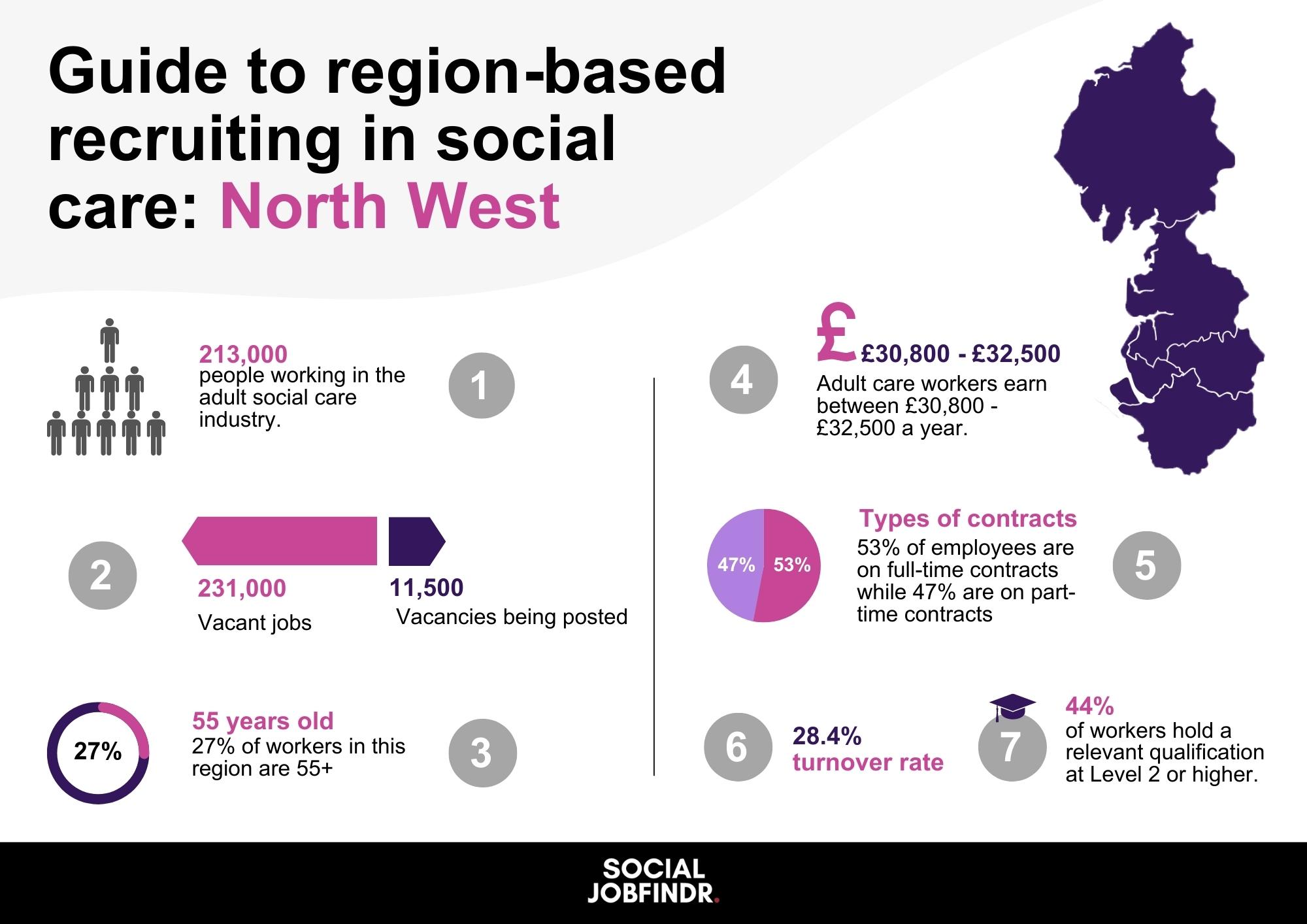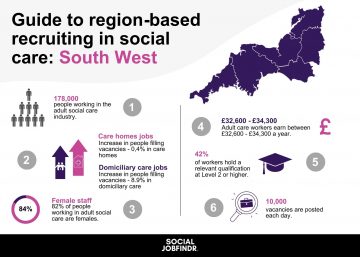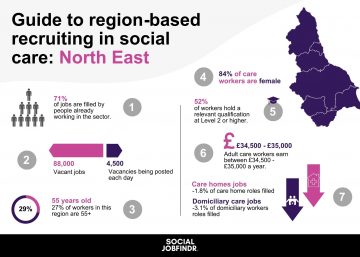In the Skills for Care 2021 report for the adult social care industry, it was highlighted that there are around 231,000 vacant jobs, with around 213,000 people already working in the industry. On an average day there are approximately 11,500 vacancies being posted.
In the North West region, 90% of adult social care workers were working on permanent contract – with 53% of these working full-time hours, and 47% part-time.
It is estimated that the staff-turnover rate of workers within the adult social care industry is around 28.4% – which is approximately 50,000 people in the region leaving their positions every year. However, 68% of these vacant jobs were filled by people already in the sector.
The North West region has around 27% of 55+ adult social care workers, which was 7% higher than the average 20% of the average economically active population.
It was reported that registered roles within the industry were on annual wages of between £30,800 to £32,500. This would be a 27% increase from 2011/2012, as the average annual pay would have been around £25,600. These figures indicate a clear nominal pay increase in the adult social care sector, which only seems to be rising over the years.
It is in the North West region where adult care workers’ pay has increased at the fastest rate since the introduction of the National Living Wage. Over time, the median hour rate for care workers is more reflective of the statutory minimum hourly rate – with a 28% increase since March 2021.
Like the other regions, there is a high percentage of adult care workers who hold, or have engaged with, a care qualification. Over 56% of direct care-providing staff have achieved or are working towards the national known Care Certificate. 49% of the adult workers have got a relevant qualification, with 44% of those holding a Level 2 or higher.
Despite the increase of vacancies within the sector that are available, there has been a 29% decrease in the number of people who are starting social care apprenticeships. There is a strong possibility that the starting wage of apprentices, and the structure of the duration, is appearing unappealing, resulting in less people taking part in these governed schemes.



